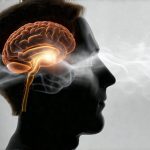The modern world demands relentless cognitive performance. We’re expected to juggle countless tasks, process information at lightning speed, and maintain focus in environments brimming with distractions. Yet, many people struggle with persistent mental fatigue, difficulty concentrating, and a frustrating sense of “brain fog.” While often dismissed as stress or lack of sleep, these issues may stem from an unexpected source: the gut. Increasingly, research highlights the profound connection between our digestive system and brain function – a relationship known as the gut-brain axis. This isn’t merely about physical discomfort; it’s about how the health of your intestinal microbiome directly impacts your ability to think clearly, stay focused, and experience optimal cognitive clarity.
For decades, the brain was considered sacrosanct, shielded from direct influence by the rest of the body. However, we now understand that this is far from true. The gut isn’t just responsible for digesting food; it’s a complex ecosystem teeming with trillions of microorganisms – bacteria, viruses, fungi, and archaea – collectively known as the gut microbiome. This diverse community plays a crucial role in everything from immune function to nutrient absorption, hormone regulation, and even neurotransmitter production. The sheer number of microbial cells residing within us significantly outweighs our own human cells, emphasizing their influence on overall health. The gut-brain axis is bidirectional: signals travel from the gut to the brain and vice versa, creating a constant communication loop that impacts mood, cognition, and behavior. Understanding this complex connection can be aided by exploring gut health further.
The Gut-Brain Axis Explained
The gut-brain axis isn’t a single pathway but rather a complex network of interconnected systems facilitating communication between the digestive tract and the central nervous system. Several key routes contribute to this intricate interplay:
- The Vagus Nerve: This cranial nerve acts as a direct line of communication, transmitting signals from the gut to the brain and back. It’s often considered the primary physical link in the axis.
- The Immune System: Gut bacteria significantly influence immune function. An imbalanced microbiome can trigger inflammation throughout the body, including the brain, potentially contributing to cognitive impairment.
- Neurotransmitters: The gut is a major producer of neurotransmitters – chemical messengers that regulate mood and cognition. For example, approximately 90% of serotonin (the “happy hormone”) is produced in the gut!
- Short-Chain Fatty Acids (SCFAs): Produced when gut bacteria ferment dietary fiber, SCFAs like butyrate play a vital role in brain health by reducing inflammation and supporting neuronal function.
A healthy gut microbiome – characterized by diversity and abundance of beneficial bacteria – supports optimal functioning of these pathways. Conversely, an imbalanced microbiome (dysbiosis) can disrupt communication along the gut-brain axis, leading to cognitive issues like brain fog, difficulty concentrating, and mood disturbances. This disruption can occur due to factors such as poor diet, stress, antibiotic use, and lack of sleep. Understanding this connection is crucial for addressing cognitive challenges holistically, moving beyond simply focusing on mental strategies alone. Implementing meal organization can also be very helpful.
How Gut Health Impacts Cognitive Function
The link between gut health and cognitive function isn’t just theoretical; it’s supported by a growing body of research. The microbiome influences brain development early in life, impacting neural circuitry and long-term cognitive abilities. Even in adulthood, the composition of your gut bacteria can directly affect various aspects of cognitive performance:
- Memory & Learning: Studies suggest that a diverse microbiome supports improved memory consolidation and learning capacity. SCFAs produced by gut bacteria are thought to enhance synaptic plasticity – the brain’s ability to form new connections.
- Attention & Focus: An imbalanced gut microbiome can contribute to inflammation, which impairs attention span and increases distractibility. Certain bacterial strains have been linked to enhanced cognitive control.
- Mood Regulation: The gut-brain axis plays a significant role in mood regulation. Dysbiosis has been associated with increased risk of anxiety and depression, both of which significantly impact cognitive function.
Specifically, inflammation is a key mechanism connecting gut health to brain fog. When the gut barrier becomes compromised (often referred to as “leaky gut”), bacteria and toxins can leak into the bloodstream, triggering an immune response and systemic inflammation. This chronic inflammation damages neurons, disrupts neurotransmitter production, and ultimately leads to cognitive decline. Restoring gut health isn’t about eliminating all bacteria – it’s about cultivating a balanced ecosystem that supports optimal brain function. It is important to understand gut transit time as well, since it impacts this process.
Strategies for Improving Gut Health & Cognitive Clarity
Addressing gut health is a multifaceted process. It requires a holistic approach encompassing dietary changes, lifestyle modifications, and potentially targeted supplementation (always consult with a healthcare professional before starting any new supplements). Here are some strategies to consider:
-
Dietary Changes:
- Increase fiber intake: Fiber-rich foods like fruits, vegetables, whole grains, and legumes feed beneficial gut bacteria. Aim for at least 25-30 grams of fiber per day.
- Limit processed foods, sugar, and unhealthy fats: These can disrupt the microbiome and promote inflammation.
- Incorporate fermented foods: Yogurt, kefir, sauerkraut, kimchi, and kombucha are rich in probiotics – live microorganisms that support gut health.
- Consider an elimination diet: Identifying food sensitivities can reduce inflammation and improve gut function.
-
Stress Management: Chronic stress negatively impacts the microbiome. Implement stress-reducing techniques like mindfulness meditation, yoga, deep breathing exercises, or spending time in nature. Cortisol, the stress hormone, can directly affect gut permeability and microbial balance.
-
Prioritize Sleep: Adequate sleep is crucial for both physical and mental restoration. Lack of sleep disrupts the microbiome and impairs cognitive function. Aim for 7-9 hours of quality sleep per night. Keeping gut health simple can help you stay consistent with these lifestyle changes.
The Role of Probiotics & Prebiotics
While dietary changes are foundational, probiotics and prebiotics can offer targeted support for gut health. It’s important to understand the difference:
- Probiotics: These are live microorganisms that, when consumed in adequate amounts, confer a health benefit on the host. They can help repopulate the gut with beneficial bacteria. However, probiotic strains vary significantly, and what works for one person may not work for another. Choosing a high-quality probiotic with diverse strains is essential.
- Prebiotics: These are non-digestible fibers that serve as food for beneficial gut bacteria, encouraging their growth and activity. Sources include onions, garlic, asparagus, bananas, and oats.
Combining probiotics and prebiotics (synbiotics) can be particularly effective, as the prebiotic provides nourishment for the probiotic bacteria. It’s important to note that supplementation isn’t a substitute for a healthy diet; it’s meant to complement it. Before taking any supplements, consulting with a healthcare professional is crucial to determine the appropriate strains and dosages for your individual needs. Fermented foods can also be a natural source of probiotics.
Understanding Brain Fog & Its Connection to Gut Health
Brain fog isn’t a medical diagnosis but rather a collection of symptoms including difficulty concentrating, memory problems, mental fatigue, and lack of clarity. It can be caused by numerous factors, including stress, sleep deprivation, hormonal imbalances, nutrient deficiencies, and underlying medical conditions. However, gut health often plays a significant role, particularly in chronic cases of brain fog.
The mechanisms linking the gut to brain fog include: inflammation triggered by dysbiosis, impaired neurotransmitter production due to microbial imbalance, reduced blood flow to the brain caused by gut-related inflammation, and nutrient malabsorption resulting from compromised digestive function. Identifying and addressing the underlying cause of brain fog is essential. This may involve working with a healthcare professional to rule out other medical conditions, optimizing your diet, managing stress levels, improving sleep hygiene, and supporting gut health through targeted interventions. A holistic approach that addresses both physical and mental well-being is often most effective. Ultimately, recognizing the profound connection between our gut and brain empowers us to take proactive steps towards enhanced cognitive clarity, focus, and overall health. Gut infections can also contribute to these issues, so addressing those is important too. Finally, remember that many nutrition myths about nausea exist and it’s best to stay informed!


















